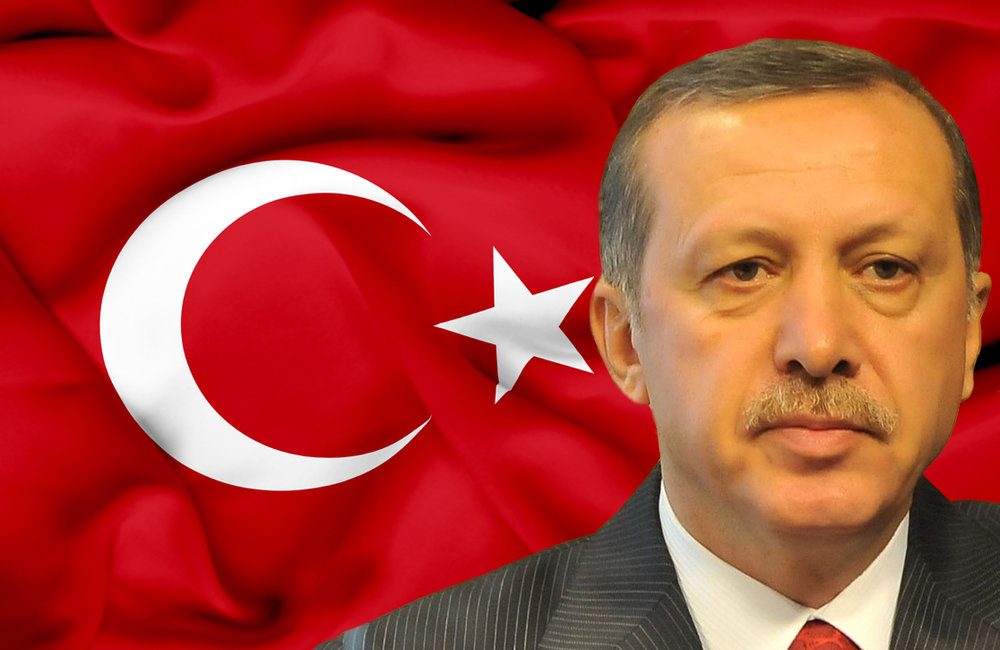Erdogan's deterrent components

Recep Tayyip Erdogan won 52 percent of the vote and, through a coalition with the National Movement Party, guaranteed his presence in Ankara's political and executive equations by 2020. In recent days, various analyzes have been made about the political atmosphere in Turkey.
Some argue that Erdogan's victory in the first round of elections reflects the "fairness" and "authority" of the AKP and the current Turkish president. However, those who have thoroughly examined the political developments in Turkey during the last three months have rejected this optimistic view! There are some points here that should be taken into consideration:
1- The dream of reviving "Ottomans time" by Recep Tayyip Erdogan has been now replaced with a concern called "Preserving Turkey." In other words, Erdogan, though unwillingly, had to walk away from "idealism" and move towards political "realism", and observes current changes in his country from a realist perspective. Prior to 2014, Erdogan set his domestic and foreign policy based on "unlimited risk taking." But today, he has to take his steps cautiously. Although Erdogan has no desire to name his old friend Abdullah Gul after the election, everyone remembers that how Erdogan and his entourage were worried about the rumor of Gul's presence at the presidential elections in Turkey. More than a fifth of the members of the AKP and other parties opposed to this movement announced their support for Abdullah Gul's presidency alike, and this could turn Erdogan to a perfect loser in his country. Thus, Erdogan's victory in Turkey's recent presidential election is due to his friend's help. The main point is that in such a situation, Erdogan can't be called "the most powerful Turkish politician"!
2. " Muharrem Ince", "Meral Aksener", and even "Salahadin Demirtash", who were all Erdogan's political rivals in the election, were able to mobilize parts of the social movements against Erdogan's policies both during the constitutional referendum and in the recent elections. Undoubtedly, Republican People's Party, People's Democratic Party and many of the opponent nationalists will continue this trend in the coming years. Erdogan could only gain 52 percent of the popular vote, while almost half of the community disagreed with his policies, and this will motivate Erdogan's opposition parties to a great extent. Hence, the recent presidential election will be the start of a new round of power play in Turkey.
3. Many regional and international affairs analysts argue that Erdogan needs a kind of "U-turn" in his regional and international politics: the European Union has closed its doors to Ankara, and with the fundamental opposition of some countries and European movements with Turkey's membership in the EU, Turkey's tremendous spending on the path to membership in the European Union has been wasted. On the other hand, three years ago, when the Turkish army was overthrowing the Russian Sukhoi, many NATO members, instead of supporting Turkey (as a member of the North Atlantic Treaty Organization), preferred to condemn Erdogan's adventurous policies in the region. It has reached a point where some European experts and politicians raised the issue of "kicking Turkey out of NATO". Thus Erdogan was left alone in his dream of "having the full support of NATO"! Although Ankara has offered NATO the Incirlik military base, it remained a stranger and was regarded as an undesirable piece by other members of the North Atlantic Treaty Organization. Moreover, the empowering of nationalist movements and far-right extremists that are fundamentally opposed to Turkey's membership in Europe, has left no optimism or hope in the minds of Turkish politicians in this regard.
4. Over the past six years, Erdogan has been attempting to topple Assad's government in Syria. But the Turkish authorities failed to achieve their goals in the neighboring country, while they expanded Turkey's security and military spending exponentially. In 2014, Abdullah Gul explicitly condemned the policies of the Erdogan government in Syria and emphasized:
“To be honest, I think it would be useful to revise our policies with regards to the Middle East and the Arab world with a more realistic approach. Turkey should play a positive role in the region and improve its relations with countries from Libya to Egypt, Yemen … in order to be a source of inspiration for the countries of these regions again".
5. Now Erdogan has to redefine his new policies in the region and the international system based on three components and important facts, namely, "Failure in Syria," "Despair of Europe," and "isolation in NATO." The more Erdogan insists on his current foreign policy, the higher Turkey's political and security costs will become. Obviously, in such an equation, "revival of the Ottoman time" and "leadership of the whole region" no longer makes sence! Erdogan should now rely on the capacity of independent players in the region, such as the Islamic Republic of Iran, and he has to perform a major surgery on Turkey's foreign policy. The Turkish president knows well that the slightest risk and mistake in his country's foreign policy will undermine the balance of power in Ankara.
Erdogan has no choice but to discard abstractions, and look directly at the realities in his country, the region and the international system. The recent election showed that there could potentially be a political explosion in Ankara even before 2022 (the end of Eudogan's presidency), and this fact should make Erdogan's more prudent. As a matter of fact, he should hasten to redefine his country's political, social and international approach, and this should be done with great caution. The question is, will he understand the necessity of these corrective measures or not?
Leave a Comment